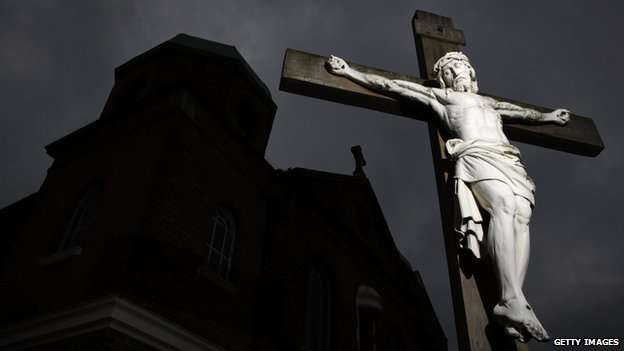It was a regular evening for 24-year-old Arsalan Gill, a humble sanitation worker from Lahore’s Railway Quarters in Mughalpura. He had just finished a long day of sweeping streets—an honest living to help support his struggling Catholic family. But as he returned home on March 17, tired and unaware, federal agents from Pakistan’s Federal Investigation Agency (FIA) were already waiting to change his life forever.
That night, the Gill family’s world fell apart.
“We didn’t understand what was happening,” said Arsalan’s older brother, Suleman Gill. “The FIA officials came late at night. They didn’t even let us see him. They just said he had been arrested for blasphemy. We were in shock. We still are.”
Arsalan, an innocent young man with no criminal history, now finds himself caught in the crosshairs of one of Pakistan’s most dangerous and misused laws. The charge? Sharing blasphemous content on Facebook—posts from groups he didn’t even know he’d been added to.
“When we finally met him briefly the next morning, Arsalan was trembling,” Suleman recalled. “He told us he had no idea how it happened. He’d been added to two Facebook groups without his consent, and had never seen the content being posted there.”
That one digital link—whether accidental, malicious, or automated—was enough. Enough to brand him a criminal in the eyes of the state. Enough to invoke Section 295-C of Pakistan’s Penal Code, a law that carries the death penalty.
The family, already battling poverty, is now grasping at straws for legal help. “My father is a daily wage laborer,” Suleman said, his voice tight with emotion. “I work as a sweeper too. We live in a rented house. How are we supposed to fight such a powerful system? How can we protect Arsalan?”
Rights groups say Arsalan may be yet another victim of what is increasingly being exposed as a dangerous network—a “blasphemy business group” operating within and alongside the very agencies meant to uphold justice. The National Commission for Human Rights and Punjab Police’s Special Branch has revealed how this group manipulates social media platforms, uses fake profiles and honey traps, and then extorts or falsely accuses innocent people—especially religious minorities.
Attorney Lazar Allah Rakha, who defends many falsely accused in such cases, says this is no accident. “The FIA’s Cybercrime Wing, especially its anti-blasphemy unit, is working in tandem with certain Islamist lawyers and activists. It’s a system. They entrap young people, then demand money or exploit the situation for other interests. It’s extortion wearing the mask of religion.”
It’s a chilling allegation—but one increasingly backed by facts. In just two years, over 400 innocent people have been dragged into this nightmare.
Recognizing the scale of the injustice, the Islamabad High Court recently called on the federal government to form an independent commission to investigate. The proposed four-member body would include a retired judge, an FIA officer, a respected religious scholar, and an IT expert to understand the technical traps being laid online.
But even as lives hang in the balance, government action has been sluggish.
At a hearing on March 21, Justice Ejaz Ishaq Khan didn’t hide his frustration. “This is a matter affecting hundreds of lives,” he said. “And yet, the progress has been painfully slow. The people are watching.”
The judge ordered that proceedings in the case be broadcast live—a rare move in Pakistan—so that the public can witness what’s at stake.
Outside the courtroom, people gathered in silent solidarity. Inside, families like the Gills waited, hearts heavy, for even a glimmer of hope.
“We just want Arsalan to come home,” Suleman said, holding back tears. “He is not a criminal. He’s just a poor young man who worked hard every day to feed his family. And now, he could be killed for something he didn’t even do.”
As the legal battle unfolds, one truth rings loud and clear—Arsalan’s story is not just about one man. It’s about hundreds like him. About a justice system that must choose between fear and fairness. And about a country struggling to protect its most vulnerable citizens from the abuse of laws meant to protect faith—but too often, used to destroy lives.
